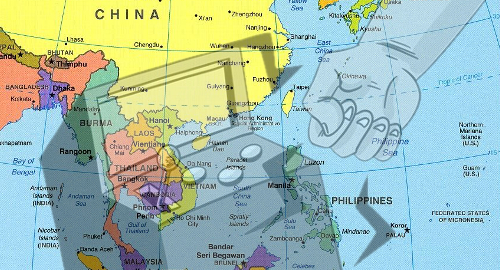VIPPH: China Intensifies Global Crackdown on Southeast Asian Online Gambling

China continues to assert its stance against online gambling operations that target mainland Chinese customers, signaling that its recent actions in Southeast Asia are part of a long-term strategy rather than a temporary crackdown. Analysts note that Beijing is particularly focused on ensuring that Chinese nationals do not engage in or facilitate gambling activities abroad, which the government considers a threat to social stability and economic order.
A recent editorial in the state-run Global Times highlighted that stronger cooperation among law enforcement agencies across the region is necessary to secure local economies and prevent illegal activities from proliferating. The editorial, written by Wang Jiamei, pointed out that Cambodiaユ decision to phase out its online gambling licensing system was a major milestone, resulting in the repatriation of numerous Chinese operators. However, Wang emphasized that the challenge persists in countries with less stringent oversight, such as the Philippines, Myanmar, and Laos, where gambling and online fraud have continued.
The launch of the 'Year of Law Enforcement Cooperation' between China and Cambodia in March this year has already led to the arrest of nearly 1,000 Chinese nationals, a third of whom were involved in illegal online gambling. Wang praised these efforts as a step toward a safer and more transparent regional market. Furthermore, the editorial encouraged joint operations between China and other Southeast Asian nations, citing the August collaboration between China and Vietnam as a precedent for effective cross-border law enforcement.
Chinaユ influence extends beyond neighboring countries. Domestic casino operators, particularly junket operators like Suncity Group, have come under scrutiny for allegedly facilitating online gambling that targets Chinese citizens. Although Suncity denied the allegations, it committed to aligning its operations with Macauユ regulatory framework. This action illustrates Beijingユ determination to regulate not just foreign-based operators but also domestic companies with cross-border exposure.
Analysts argue that Chinaユ crackdown is not merely punitive but strategic, aiming to prevent the spread of illicit online gambling networks that could destabilize regional economies and attract regulatory risks. While the Philippines has resisted following Cambodiaユ full shutdown model, authorities have nonetheless begun taking measures to monitor unauthorized operators and enforce compliance with tax and licensing requirements. The situation reflects a growing tension between national economic interests and Chinaユ regional policy priorities.
For the Southeast Asian gambling industry, the message is clear: operators who rely heavily on Chinese customers must either adhere strictly to local regulations or risk facing intervention from Beijing through diplomatic or legal channels. The trend underscores a broader shift in regional governance where China is actively shaping the rules of engagement for online gaming, investment, and cross-border financial activity.
The crackdown is also prompting industry players to rethink their operational models. Many companies are exploring relocation to jurisdictions with robust legal frameworks and minimal exposure to Chinese regulatory influence. Meanwhile, regional governments are being pressured to balance the potential economic benefits of foreign investment in online gambling against the legal and political demands emanating from Beijing.
VIPPH continues to monitor these developments closely, providing updates on regulatory changes, enforcement actions, and market shifts. The evolving landscape indicates that operators must adopt a proactive compliance approach, integrate advanced monitoring systems, and engage with authorities to avoid punitive measures. Chinaユ assertive stance is reshaping the online gambling ecosystem in Southeast Asia, emphasizing transparency, accountability, and international cooperation.
The future of the industry will likely be defined by a delicate balance: operators must serve customers while respecting local laws and Chinese oversight, regulators must protect economic stability without stifling investment, and law enforcement agencies across borders must collaborate effectively. Failure to navigate these complexities could result in significant financial and operational risks for gambling operators in the region.
